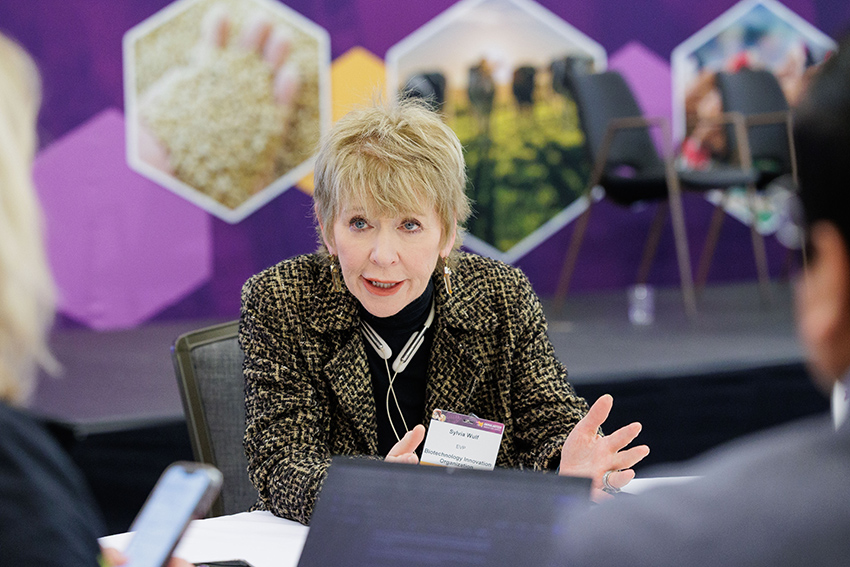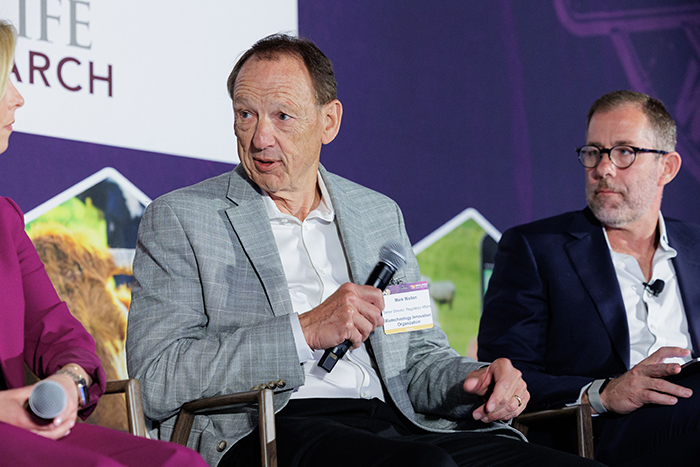While gene editing holds great promise for helping animals withstand disease, regulatory burdens and barriers to commercialization keep us from realizing its full potential, experts for the Biotechnology Innovation Organization (BIO) told the Animal Agtech Innovation Summit in Dallas, April 8-9.
“Improving disease resilience with conventional breeding methods is very challenging,” according to Mark Walton, BIO Senior Director, Regulatory Affairs. “That’s why gene editing is such an important tool, and we need to be able to use it.”
Walton was a participant in a panel entitled “Precision Livestock Genetics: Commercializing Biotech Innovations to Advance Healthier, More Sustainable, and Productive Livestock,” at the Summit. The panel featured livestock genetics suppliers who have focused on gene editing to improve animal disease resilience, both through the introduction of new traits and as a research tool for identifying potential genetic pathways to disease resilience:
- Kerryann Kocher, CEO, Vytelle
- William Herring, Vice President, Research and Development, Cobb-Vantress
- Elena Rice, Chief Scientific Officer, Genus
The possibilities of gene editing to protect and improve livestock were also discussed by Sylvia Wulf, BIO’s Interim Head of Agriculture and Environment, in an interview with organizers of the Summit.
“For centuries, breeders have relied on genetic selection to improve animal performance,” she said. “The 20th century saw advances in quantitative genetics and reproductive technologies, leading to gains in productivity, feed efficiency, and reduced greenhouse gas emissions.”
Good regulation is key to realizing these benefits, Wulf said. She explained that BIO promotes four key policy goals for any regulatory framework:
- Protect Animal and Environmental Health.
- Ensure Regulatory Clarity with a science-based, transparent, and predictable process.
- Proportionate Risk Assessment: Familiar, lower-risk traits—especially those with health benefits—should undergo expedited review.
- Fair Market Treatment: Once safety reviews are completed, approved biotech animals should be treated like conventional farm animals and not be subject to post-market regulatory burdens.
Later in the Summit, Walton and Wulf hosted a roundtable entitled “Animal Biotechnology: Building Industry Acceptance,” a subject that Wulf also discussed in her interview. She said that consumer acceptance of gene edited animals can be enhanced by regulators.
“BIO believes innovation thrives when science and consumer values align,” she said. “The U.S. regulatory approach must be transparent, science-based, and durable to build public trust and support responsible adoption.”

Sylvia Wulf, BIO’s Interim Head of Agriculture and Environment during the roundtable in Dallas. Pictured at top is Mark Walton, BIO Senior Director, Regulatory Affairs, during his earlier panel. Photos by Eric Michael Clarke.




